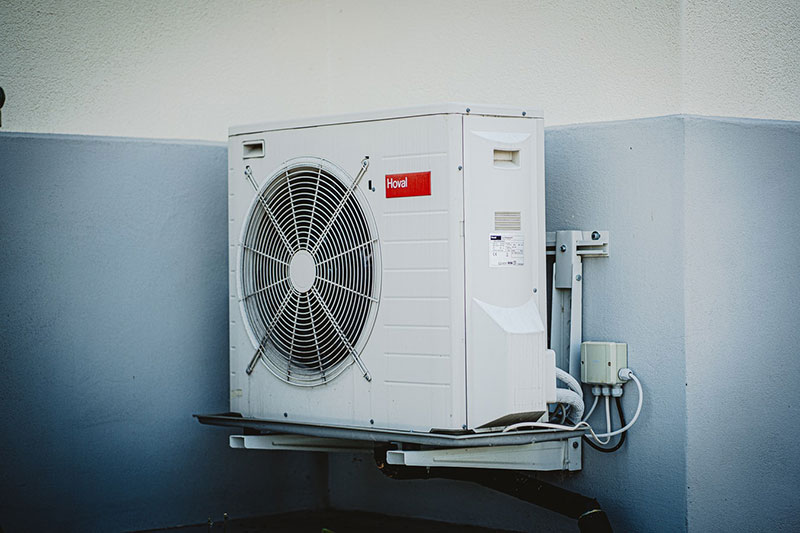Advertisement
Nearly every home today has a split air conditioning system. That puts the evaporator inside and the condenser unit outside. The problem first lies in the location of the condenser unit in relationship to the house. The outside unit contains the compressor, the condenser, and the blower with its large and sometimes noisy blades, all of which create noises when they’re running. In the summer, that’s most of the time, it seems.
When your air conditioning unit runs, the compressor and fan work together to raise the noise level, sometimes high enough for your neighbors to come knocking on your door. The older the unit, the more noise it makes. Sometimes the noise radiates around the neighborhood and even permeates the walls and windows of homes. That’s when you know it’s time to do something.
Sometimes all the racket is because the blower loosened upon its shaft and wobbles while it runs. Or the blades might be dirty, causing the blower to run unbalanced and causing the noise. Another potential source of noise from your air conditioner might be as simple as an uneven cement pad under the unit.
If an inspection reveals a cracked or partially missing foundation, you would be wise to stop using it until you can make the repair. The constant vibration could cause the Freon lines to break or leak, depending on if they’re moving with the vibration.
A Freon leak typically shows itself as a glowing ball of frost or ice at the leak site, and an open line means no cooling at all inside your house. In either case, you can save yourself hundreds of dollars by acting quickly.
Only a good inspection will tell you the cause.
At this point, you have two choices to stop the excessive noise if a good cleaning made no difference, or the inspection didn’t show any problems. One is to replace the unit and the other, much less costly option is to build a soundproof enclosure around the unit.
Let’s start with the enclosure walls. If you are considering building them without roofing, they should be at least six inches from the top of the unit, but twice the height performs better.
That will allow you to address the issue by creating an enclosure on three sides around the condenser unit. You will need to do some building and construction, but keep in mind the acoustical properties and aesthetics of the enclosure.
Privacy Fencing
A privacy fence is more expensive in terms of money and time, but it’s the best all-around solution to reduce noise from your air conditioning system. You have the option of adding more expansive sound-deadening panels or blankets.
The privacy fencing will cover the entire system on three sides. You can set them up so they are between two and six inches from the outside of the air conditioner and about four inches longer on the sides.
Like the panels, cut the fencing at least six inches taller or up to twice the height of the condenser unit. Depending on your preference, you can also cement posts in place and attach the fencing, or use acoustic panels in their place, or use heavy plywood for fencing and attach the panels to them.
Some Considerations Before Construction
First, consider the location of the enclosure. The condenser unit is large and requires sufficient airflow from all sides. Two to six inches of clear, unobstructed space for airflow is mandatory. Those fins you see on the outside of the unit allow air to flow freely through them to help cool the Freon within the condenser coils. That cooling then permits the Freon to flow unimpeded to the evaporator.
Remember to allow for easy access to the entire air conditioning unit in the event of service or maintenance, especially for clearing debris from around the unit. Before building the walls, you should know if sound-deadening blankets will suffice, or more preferably, outdoor sound-deadening acoustic panels are the better choice. Secure them to the walls with outdoor-use Velcro for best results or to strong plywood panels. Furthermore, if you fail to quiet your air conditioning unit, you can schedule a meeting at Highland air conditioning as they are qualified and expert contractors.
Is Your Home Soundproof?
Here’s a possibility you may not have thought about. Let’s assume you took all the steps to reduce the noise from your outside air conditioning unit. But despite that, you still hear too much.
As a suggestion, look at other areas within your home that aren’t well soundproofed. Rattling windows, thin or lightly insulated walls, or doors will contribute to the noise. Assuming your outside air conditioning unit runs quieter now, maybe a few tweaks here and there inside your home might make it more peaceful for you.

